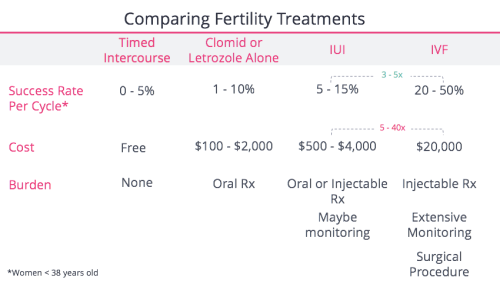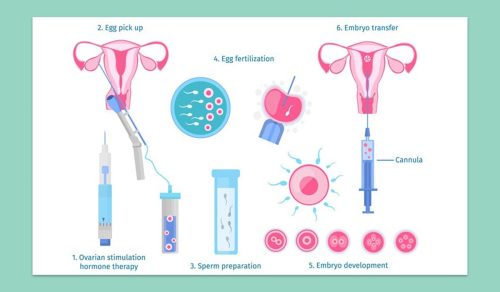Does Cigna Cover IVF? Your Guide to Understanding Fertility Insurance
Navigating the world of insurance can feel like trying to solve a puzzle with missing pieces—especially when it comes to something as personal and life-changing as in vitro fertilization (IVF). If you’re with Cigna and wondering whether your plan covers IVF, you’re not alone. Millions of people across the U.S. face infertility challenges, and IVF often becomes a beacon of hope. But the big question remains: will Cigna help you pay for it?
In this guide, we’ll dive deep into what Cigna offers for IVF coverage, how it works, and what you can do to maximize your benefits. We’ll also explore real-life factors—like state laws, employer plans, and recent trends—that could affect your journey. Whether you’re just starting to explore fertility options or you’re ready to take the next step, this article is here to give you clarity, practical tips, and a little encouragement along the way.
What Is IVF, and Why Does Insurance Matter?
IVF is a process where doctors combine an egg and sperm in a lab to create an embryo, which is then placed in the uterus to (hopefully) grow into a baby. It’s a remarkable option for people struggling with infertility due to blocked fallopian tubes, low sperm count, or unexplained issues. But here’s the catch: it’s expensive. A single IVF cycle can cost between $12,000 and $20,000, not including medications, which can add another $3,000 to $5,000. For many, that’s a huge financial hurdle.
Insurance can make or break your ability to pursue IVF. Without coverage, you might be stuck saving for years or taking out loans. With it, the dream of starting a family feels more within reach. Cigna, one of the major health insurance providers in the U.S., serves millions through employer-sponsored plans and individual policies. So, understanding what Cigna covers is a critical first step.
Does Cigna Cover IVF? The Short Answer
Cigna can cover IVF, but it depends on your specific plan. Unlike some medical treatments that are universally covered (like setting a broken bone), fertility treatments like IVF aren’t guaranteed. Coverage varies based on factors like your employer, your state, and the details of your policy. Some Cigna plans offer full IVF support, while others might only cover diagnostics (like tests to figure out why you’re not conceiving) or nothing at all.
To find out, you’ll need to dig into your plan documents or call Cigna directly. But don’t worry—we’ll walk you through how to do that and what to expect.
How Cigna Handles Fertility Coverage
Cigna doesn’t have a one-size-fits-all policy for IVF. Instead, they tailor coverage to the plans employers choose or the individual policies you buy. Here’s what typically happens:
Diagnostic Testing: Usually Covered
Most Cigna plans cover the first step—figuring out what’s going on. This might include:
- Blood tests to check hormone levels.
- Ultrasounds to look at your ovaries or uterus.
- Semen analysis for male partners.
These tests can cost hundreds of dollars without insurance, so it’s a relief that they’re often included. But here’s where it gets tricky: once you have a diagnosis (like “infertility”), coverage for treatments like IVF might stop unless your plan specifically includes it.
IVF Coverage: It’s a Maybe
If your plan does cover IVF, it might pay for:
- Egg retrieval (collecting eggs from the ovaries).
- Sperm collection and lab fertilization.
- Embryo transfer (placing the embryo in the uterus).
- Sometimes even medications like hormone shots.
However, there are usually limits. For example, some plans cap coverage at a certain dollar amount (say, $10,000 lifetime) or a set number of cycles (like two or three attempts). Others might exclude “extras” like freezing embryos for later use.
What’s Not Covered?
Even with IVF coverage, some things might still be out-of-pocket:
- Donor eggs or sperm (if you need them).
- Surrogacy (if someone else carries the baby).
- Experimental treatments (like certain genetic screenings).
Factors That Affect Your Cigna IVF Coverage
Your Cigna plan isn’t the only thing that decides if IVF is covered. Here are the big players that can tip the scales:
Your Employer’s Choice
If you get Cigna through work, your employer picks the plan. Some companies opt for generous fertility benefits to attract employees—think tech giants or progressive firms. Others stick to basic health coverage, leaving IVF off the table. In 2025, more employers are adding fertility perks due to demand, but it’s still not standard.
State Laws
Where you live matters. As of April 2025, 21 states have laws requiring some level of infertility coverage, and 15 of those include IVF. For example:
- New York: Large group plans (over 100 employees) must cover three IVF cycles.
- Illinois: Plans must cover up to six egg retrievals if pregnancy hasn’t happened.
- Florida: No mandate, so it’s up to your plan.
If you’re in a state with a mandate, Cigna has to follow it for certain plans. Check your state’s rules to see if you’re in luck.
Your Plan Type
Cigna offers HMO, PPO, and other plan types. PPOs often give you more flexibility to see fertility specialists, but they might cost more in premiums. HMOs might limit you to in-network providers, which could affect your options.
How to Check If Your Cigna Plan Covers IVF
Finding out what’s covered doesn’t have to be a headache. Here’s a step-by-step guide to get answers:
- Grab Your Plan Documents
Look for your “Summary of Benefits and Coverage” (SBC). It’s a short document that lists what’s included. Search for terms like “infertility,” “IVF,” or “assisted reproductive technology.” - Call Cigna Customer Service
Dial the number on your insurance card. Ask:- Does my plan cover IVF?
- Are there limits (cycles, dollars, etc.)?
- What about medications or embryo freezing?
- Do I need pre-authorization?
- Talk to HR (If It’s a Work Plan)
Your human resources team can tell you if fertility benefits are part of the package. They might even have a comparison of plans if open enrollment is coming up. - Check with Your Doctor
Fertility clinics often have staff who can verify coverage for you. Bring your insurance info to your first appointment.
Pro Tip: Write down who you talk to and what they say. Insurance can be a maze, and having notes keeps you on track.
Real Stories: What Cigna Customers Say About IVF Coverage
Sometimes, hearing from others makes it all click. Here are two examples based on common experiences:
Sarah’s Success
Sarah, a 32-year-old teacher in New York, had Cigna through her school district. Her plan covered three IVF cycles because of the state mandate. After two tries (and $4,000 out-of-pocket for meds), she welcomed twins. “It wasn’t cheap, but Cigna saved us from a $40,000 bill,” she says.
Mike’s Struggle
Mike, a 38-year-old mechanic in Texas, wasn’t so lucky. His Cigna plan covered diagnostics but stopped there—no IVF help. With no state law to back him up, he and his wife are saving up for their first cycle. “It’s frustrating,” he admits, “but we’re not giving up.”
These stories show how much your situation can vary. Your location, job, and plan details shape the outcome.
Interactive Quiz: Could Cigna Cover Your IVF?
Take a quick moment to see where you might stand. Answer these questions (mentally or on paper):
- Do you get Cigna through your employer?
- Yes / No
- Does your state have an infertility mandate? (Google your state + “infertility insurance laws” if unsure.)
- Yes / No
- Have you checked your plan documents for “IVF” or “infertility” coverage?
- Yes / No
- Are you willing to switch plans or jobs for better benefits?
- Yes / No
If you answered “Yes” to 1 and 2, your odds are higher. If you’re still at “No” for 3, it’s time to dig deeper. And if you said “Yes” to 4, you’ve got options we’ll explore later!

What If Cigna Doesn’t Cover IVF?
No coverage doesn’t mean no hope. Here are practical ways to move forward:
Look for Add-Ons
Some Cigna plans let you buy extra fertility coverage during open enrollment. It might bump up your premium, but it could save thousands on IVF.
Switch Plans
If your employer offers multiple Cigna options, compare them. One might include IVF while another doesn’t. Open enrollment (usually late fall) is your chance to switch.
Explore State Programs
A few states, like Massachusetts, offer grants or low-cost IVF programs. Check with your local health department or fertility clinics.
Financing Options
- Loans: Companies like Future Family offer fertility loans with reasonable rates.
- Clinic Discounts: Some centers have multi-cycle packages (e.g., pay for two cycles, get a third free).
- Grants: Groups like BabyQuest Foundation provide financial aid for IVF.
Self-Pay Tips
If you’re paying out-of-pocket, ask clinics about payment plans or cash discounts. Shopping around can also save you—prices vary widely between providers.
The Hidden Costs of IVF (Even With Coverage)
Even if Cigna covers IVF, you might still face expenses. Here’s what to watch for:
| Cost Type | Estimated Range | Covered by Cigna? |
|---|---|---|
| Medications | $3,000–$5,000 | Sometimes (check your plan) |
| Genetic Testing | $1,000–$3,000 | Rarely |
| Embryo Freezing | $500–$1,000/year | Sometimes |
| Travel to Specialists | $100–$1,000+ | No |
Reality Check: One study from 2023 found that 60% of insured IVF patients still paid over $5,000 out-of-pocket due to gaps like these. Planning ahead can soften the blow.
New Trends in IVF Coverage for 2025
Fertility benefits are evolving, and 2025 is bringing some shifts worth knowing about:
Employer Push
More companies are adding IVF coverage to stay competitive. A 2024 Mercer survey showed 45% of large employers now offer some fertility benefits, up from 36% in 2020. If your workplace doesn’t yet, it might soon—especially if you’re in a hot job market.
State Law Updates
States like Colorado and Delaware expanded infertility mandates in 2024, and others might follow in 2025. Keep an eye on your local news—new laws could force Cigna to step up.
Tech and Insurance
Telehealth fertility consults are booming, and some Cigna plans now cover virtual visits with specialists. This can cut costs and make the process easier.
Three Things Other Articles Miss About Cigna and IVF
Most guides stop at “check your plan,” but there’s more to the story. Here are three under-discussed angles:
1. Cigna’s Strategic Alliances
Cigna partners with other insurers (like Priority Health in Michigan) to expand coverage. In these areas, IVF billing rules might differ—some providers must bill Cigna directly instead of charging you upfront. This could save you from reimbursement hassles if you’re in a partnered region.
2. Pre-Authorization Traps
Even with IVF coverage, Cigna often requires pre-approval. Miss this step, and your claim could be denied. One 2024 clinic report found 15% of IVF denials stemmed from skipped authorizations. Always ask your doctor to submit this paperwork early.
3. Mental Health Tie-In
Infertility is stressful, and IVF can take an emotional toll. Some Cigna plans bundle mental health support (like therapy) with fertility benefits, but it’s rarely advertised. A 2023 study linked therapy during IVF to a 10% higher success rate—yet few patients tap into this perk. Check if it’s in your plan.
Your Action Plan: Making IVF Work With Cigna
Ready to take charge? Here’s how to turn knowledge into results:
Step 1: Confirm Coverage
Call Cigna today. Use the questions from earlier and get everything in writing. If IVF’s covered, ask about limits and in-network providers.
Step 2: Budget Smart
List your potential costs (meds, travel, etc.) and see where Cigna fits in. Save a buffer—$2,000–$5,000 is a safe start.
Step 3: Build Your Team
Find a Cigna-approved fertility specialist and a financial counselor at the clinic. They’ll help you navigate claims and appeals if needed.
Step 4: Explore Alternatives
No coverage? Research grants, loans, or a job switch. Even a part-time gig with fertility benefits could change the game.
Poll: What’s Your Biggest IVF Worry?
We’d love to hear from you! Pick one:
- A) Cost—even with insurance.
- B) Finding a good doctor.
- C) The emotional rollercoaster.
- D) Something else (tell us in your head!).
Your answer helps us understand what matters most to readers like you.
The Emotional Side of IVF and Insurance
Let’s be real—IVF isn’t just about money or logistics. It’s a journey filled with hope, setbacks, and big feelings. One minute, you’re thrilled about a positive test; the next, you’re crushed by a failed cycle. Insurance can ease the financial sting, but it doesn’t erase the stress.
Here’s a tip from someone who’s been there: celebrate small wins. Did Cigna cover your ultrasound? Awesome. Did you find a clinic you trust? That’s progress. Breaking it into bite-sized victories keeps you going.
Final Thoughts: You’ve Got This
So, does Cigna cover IVF? Maybe—probably—depending on your plan, state, and a little luck. It’s not a simple yes or no, but armed with the right questions and a solid plan, you can figure it out. Whether Cigna foots the bill or you find another way, the goal is the same: building the family you’ve been dreaming of.
Take it one step at a time. Call Cigna, talk to your doctor, and lean on your support system. You’re not alone in this, and every move forward counts. What’s your next step going to be?




